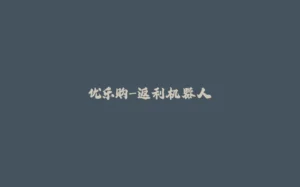The problem is as follow:
Given an array of integers nums and an integer target, return indices of the two numbers such that they add up to target.
You may assume that each input would have exactly one solution, and you may not use the same element twice.
You can return the answer in any order.
Example 1:
Input: nums = [2,7,11,15], target = 9Output: [0,1]Input: nums = [2,7,11,15], target = 9 Output: [0,1]Input: nums = [2,7,11,15], target = 9 Output: [0,1]
Enter fullscreen mode Exit fullscreen mode
Explanation: Because nums[0] + nums[1] == 9, we return [0, 1].
Example 2:
Input: nums = [3,2,4], target = 6Output: [1,2]Input: nums = [3,2,4], target = 6 Output: [1,2]Input: nums = [3,2,4], target = 6 Output: [1,2]
Enter fullscreen mode Exit fullscreen mode
Example 3:
Input: nums = [3,3], target = 6Output: [0,1]Input: nums = [3,3], target = 6 Output: [0,1]Input: nums = [3,3], target = 6 Output: [0,1]
Enter fullscreen mode Exit fullscreen mode
Here is how I solved it:
- We want to create a dictionary named
index_mapto store the integers innumsand their corresponding indices.
index_map = {}index_map = {}index_map = {}
Enter fullscreen mode Exit fullscreen mode
- Then, we will use enumerate to get both index
iand valuenumof each element innums. For each integer, let’s calculate the complement, which is the difference between thetargetand the current elementnum.
for i, num in enumerate(nums):n = target - numfor i, num in enumerate(nums): n = target - numfor i, num in enumerate(nums): n = target - num
Enter fullscreen mode Exit fullscreen mode
- Now check the dictionary: if n is in the dictionary, it means we have found the two integers that add up to the
targetReturn thenindex and the current index as a list.
if n in index_map:return [index_map[n], i]if n in index_map: return [index_map[n], i]if n in index_map: return [index_map[n], i]
Enter fullscreen mode Exit fullscreen mode
- Else, if
nis not in the dictionary, add the current elementnumand index to the dictionary.
index_map[num] = iindex_map[num] = iindex_map[num] = i
Enter fullscreen mode Exit fullscreen mode
Here is the completed solution:
class Solution:def twoSum(self, nums: List[int], target: int) -> List[int]:index_map = {}for i, num in enumerate(nums):n = target - numif n in index_map:return [index_map[n], i]index_map[num] = iclass Solution: def twoSum(self, nums: List[int], target: int) -> List[int]: index_map = {} for i, num in enumerate(nums): n = target - num if n in index_map: return [index_map[n], i] index_map[num] = iclass Solution: def twoSum(self, nums: List[int], target: int) -> List[int]: index_map = {} for i, num in enumerate(nums): n = target - num if n in index_map: return [index_map[n], i] index_map[num] = i
Enter fullscreen mode Exit fullscreen mode

































暂无评论内容